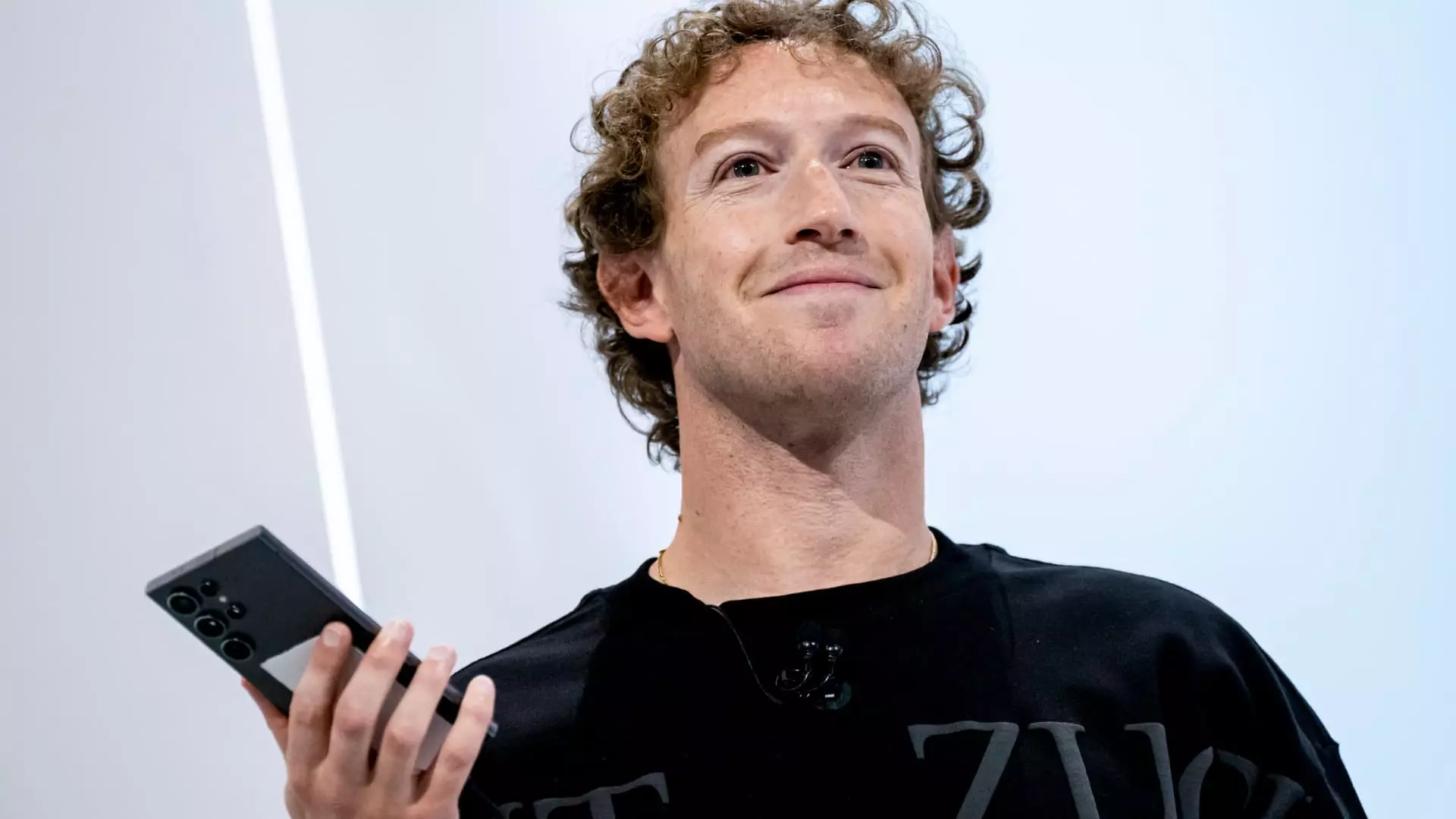In a recent episode of the popular podcast “Joe Rogan Experience,” Meta CEO Mark Zuckerberg did not hold back in his criticisms directed at Apple. His assessment of Apple revolves around a central theme: a diminishing pace of innovation and increased restrictive practices that have, in his opinion, led the tech giant down a path of mediocrity. In the age of rapid technological advancement, Zuckerberg’s comments demand a closer examination of the implications for both Apple and the tech sector as a whole.
Zuckerberg acknowledged the transformative impact of the iPhone, suggesting that its introduction has fundamentally altered global communication. He noted that the widespread adoption of smartphones has facilitated remarkable technological opportunities worldwide. However, he juxtaposed this with a critical perspective on Apple’s subsequent track record. According to him, the innovation that once defined the company has stagnated, implying that Apple has become complacent. The iPhone, which was revolutionary when it debuted under Steve Jobs, seems to be a relic of a bygone era rather than a platform for continual innovation.
The crux of Zuckerberg’s argument highlights a frustrating reality for many consumers and developers: Apple’s approach to product development appears intent on capitalizing on its existing user base rather than pushing technological boundaries. He suggests that instead of groundbreaking innovations, Apple’s newer iterations of the iPhone are receiving tepid responses, as consumer upgrades are becoming less urgent without significant advancements in features or functionality.
One of the most contentious points raised by Zuckerberg was Apple’s so-called “30% tax” on developers seeking to sell apps and services through the App Store. As a major player in the tech industry, Apple maintains tight control over its ecosystem, which not only generates substantial revenue but also deters competitors from thriving. Zuckerberg’s assertion that Apple profits by “squeezing” developers reveals a strategic maneuvering that prioritizes profit margins over fostering a vibrant innovation landscape.
This dynamic poses a larger question: How sustainable is Apple’s model in an increasingly competitive market? As developers seek alternative platforms with fewer restrictions, Apple’s monopoly threatens to stifle creativity and limit options for consumers. Zuckerberg’s call to action for Apple to reassess this framework is underscored by a prevailing sentiment among developers that a more open environment would benefit everyone.
Apple has long championed itself as the guardian of user privacy, a narrative Zuckerberg acknowledges but critiques. He argues that the company hides behind privacy concerns to justify its restrictive practices. His perspective is enlightening; he implies that if Apple truly prioritized security, it could create more open and interoperable standards that would allow diverse third-party offerings. This juxtaposition of privacy versus accessibility poses a profound challenge to Apple’s business philosophy.
Vision Pro’s Underwhelming Reception: A Reflection on Innovation Failed?
Zuckerberg didn’t shy away from commenting on Apple’s recent attempts to innovate, specifically singling out the Vision Pro headset, which has reportedly struggled to gain traction in the market. By candidly admitting that while the product aims for brilliance, it failed to resonate with consumers—a critique articulating a perception that Apple is caught in a cycle of hype without substance. Zuckerberg’s remarks about the Vision Pro suggest that even if Apple attempts to pivot towards the future, they are not meeting the consumer’s expectations.
Zuckerberg’s critique serves as a clarion call for not just Apple but the broader technology sector. As we navigate a landscape that thrives on connectivity and innovation, the challenge lies in maintaining a balance between user control, privacy, and the relentless pursuit of groundbreaking breakthroughs. The implications of complacency, as suggested by Zuckerberg, loom large—both for Apple’s long-term viability and the enriching ecosystem that technology ought to represent.

